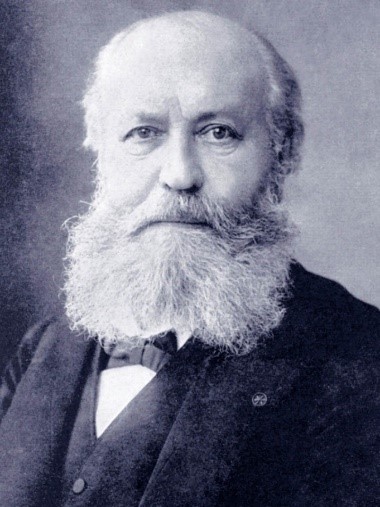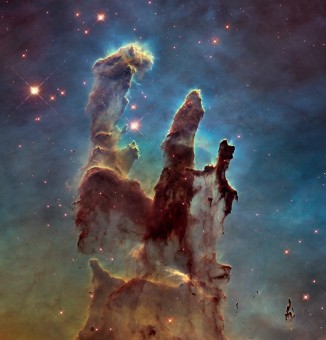Like most languages in the world, English has only a single term for “one.” It means a simple one, an absolute or undivided one. The Hebrews, on the other hand, had two different concepts—and thus two different words—for one.
The Hebrew yachid answers to our English “one”: a simple, absolute, indivisible one. But another Hebrew term, echad, means a united one, a compound one, a bound-together one. Societies without this second sense of “one” are at a difficulty to grasp a central biblical truth that impinges on multiple important aspects of human life. I speak, of course, of God as Trinity, one God in Three Persons.
Two important biblical texts speak of “echâd at which is united as one in contrast to separate parts.”
- Gen 2:24: “Therefore a man shall leave his father and his mother and hold fast to his wife, and they shall become one [echâd] flesh.”
- Deu 6:4: “Hear, O Israel: The Lord our God, the Lord is one [echâd].”
Since English has no equivalent for echâd, British author Arthur Koestler writing in The Ghost In the Machine, proposes the word holon from the Greek holos, “whole” which signifies the whole and the part existing simultaneously.
The early church fathers wrestled with how to explain that God was one existing in three distinct, divine persons, Father, Son and Holy Spirit. On an abstract level, this is the ancient question of “the one and many.” The concept of echâd equipped the Hebrews to grasp the “one and many,” which would later be understood and articulated in the early church councils as the doctrine of the Trinity: Father, Son and Holy Spirit, one God in three persons. But the modern mind, bound by the concept of a single, undivided one, struggles with this philosophical framework. Thus Koestler proposes the word holon to carry this concept.
 Derivation of the Trinity as theological language
Derivation of the Trinity as theological language
Tertullian, in about 210 A.D., first used the Latin word Trinity (literally “triad” or “threefold”) to articulate the orthodox understanding that God was Three in One, all the members of the Godhead being co-eternal and of the same nature or essence. The members of the Trinity are distinct persons in divine community.
The persons of the Trinity are characterized, among other things, by Truth, Beauty and Goodness. These characteristics of the Godhead are manifested in the creation order:
- Truth—Reflects God’s physical and metaphysical laws

- Justice—Reflects God’s moral laws
- Beauty—Reflects God’s aesthetic laws
These may be called elements of the culture of the kingdom of God, the Trinitarian Culture. As with the Trinity, there is unity and diversity in the Trinitarian Culture.
French composer Charles Gounod (1818-1893) captures the wonder of this when he writes of the relationship between the Trinitarian God  and Trinitarian culture: “Besides Goodness and Truth, there was Beauty, which proceeded from the other two as the Holy Spirit from the Father and the Son.”
and Trinitarian culture: “Besides Goodness and Truth, there was Beauty, which proceeded from the other two as the Holy Spirit from the Father and the Son.”
Each can be examined separately, but they can never be divided. In other words, these three elements of kingdom culture cannot be siloed.
Just as there is Unity and Diversity in the Godhead, so there is in Trinitarian Culture. The elements of the culture of the kingdom of God are gloriously echâd:
- Truth is good and beautiful
- Goodness is beautiful and truthful
- Beauty is good and truthful
Each is defined within the context of the whole. While they can be examined individually they are not static. None can be fully understood apart from the other. They are integrated. They are bound together relationally.
We have discussed this in Perichoresis: The Great Dance of God.
A truth needed in today’s world
As the third decade of the 21st century begins, we are witnessing the hollowness of secular/materialistic culture and its logical consequence of despair. Postmoderns are denying reality and wallowing in feelings and delusion. Contrast this with the wonder of the Triune God and the culture His nature has birthed.
May all who profess to follow Jesus Christ commit, in the new year, to bring Truth, Beauty, and Goodness into our struggling and broken nations. The world is hungry for the coming kingdom of God.
- Darrow Miller







2 Comments
Trevor
March 4, 2020 - 1:03 amSo blessed to read this. Gives so much clarity into what the nature of God is, the culture of the kingdom and how to build nations. Thank you!
admin
March 4, 2020 - 6:06 amGlad you found it helpful. Please pass it on to your friends.